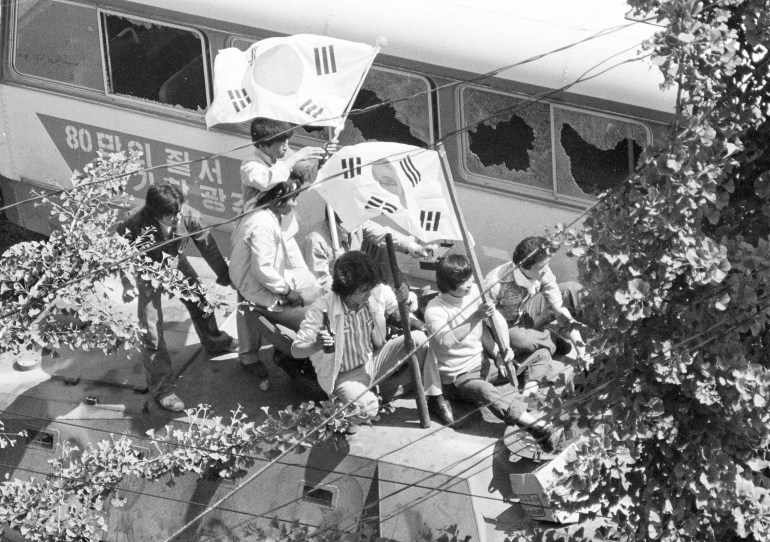According to historians in South Korea, Carter also adopted the policies of a military-backed government that is criticized for violating human rights.
In May 1980, a student-led pro-democracy uprising in the South Korean city of Gwangju was met with a brutal crackdown. In a single day, 60 people were killed and hundreds injured.
Journalist Timothy Shorrock, who has been reporting on US-South Korea relations for decades, said that the Carter administration was wary of losing a useful Cold War ally and, therefore, threw its weight behind the military government.
He explained that the US supported the South Korean leadership by releasing military resources that would allow troops to end the uprising.
“Knowing that]military leader General Chun Doo-hwan’s] forces had murdered 60 people the day before, they still believed this uprising was a national security threat to the United States”, Shorrock said of the Carter officials.
Some protesters who were persuaded of US rhetoric on democracy and human rights believed that the US was intervening on their behalf when a US aircraft carrier was deployed there.
Instead, the carrier had been deployed to increase US military presence, allowing South Korean troops to be re-assigned to North Korea’s demilitarized zone to quell the uprising.
According to Shorrock, emergency plans even included the possibility of using US forces if Gwangju’s unrest escalated.
The official government figure for the uprising is 160 people, despite the fact that there is no universally accepted death toll. More than 1, 000 people died, according to some academic sources.
Carter responded by saying there was “no incompatibility” when a reporter inquired whether his actions had conflicted with his ostensible commitment to human rights.
He claimed that the US was supporting South Korea’s efforts to defend its national security from “communist subversion,” a statement that echoed the military leadership’s claims.
South Korean leaders had long used this rhetoric to defend repressive and anti-democratic measures.
Many people compared the traumatic events of Gwangju to South Korean President Yoon Suk-yeol’s declaration of martial law in December 2024 in the name of “antistate forces.”

Leave a Reply